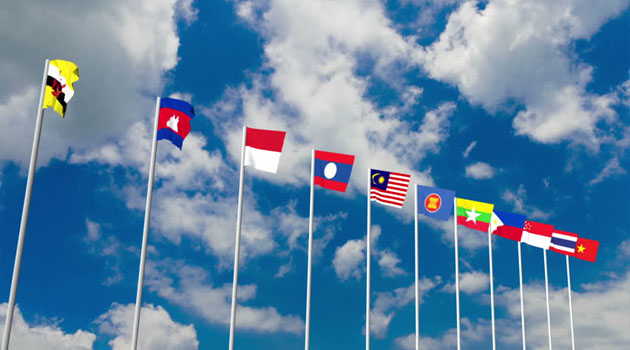Asean Centrality Essential for Peaceful, Prosperous Indo-Pacific

Indonesia on Wednesday reiterated that the leadership and centrality of the Southeast Asian region is essential for peace and prosperity of the Indo-Pacific Region.
The message was conveyed by the Director-General of the Policy Analysis and Development Agency of the Ministry of Foreign Affairs, Siswo Pramono, during a review of a book, “Indonesia`s Foreign Policy and Grand Strategy in the 21st Century: Rise of an Indo-Pacific Power”.
“Asean (the Association of South East Asian Nations) is a must in the Indo-Pacific,” said Pramono.
The concept of Indo-Pacific was not novel as many countries had proposed their own visions for a regional architecture in the region. Indonesia had proposed this concept back in 1997, and the perspective was brought back in 2013 by the then Minister of Foreign Affairs, Marty Natalegawa, during the Asean-US meeting in Washington.
President Joko Widodo also expanded on Indonesia`s concept of Indo-Pacific at the Asean summit in Singapore last month. One of key messages from President Widodo was Asean?s centrality in the Indo-Pacific concept, said Pramono.
“We have the Indian and the Pacific Oceans and Asean is in the middle, in the fulcrum of Indo-Pacific. Indonesia also has a vision of becoming a global maritime fulcrum. This is why Asean needs to engage in the discourse on the Indo-Pacific concept,” said Pramono.
Indonesia had been in consultation with many countries including in Asean to develop a transparent and inclusive Indo-Pacific concept.
In March, the Minister of Foreign Affairs, Retno Marsudi, had said: “We have talked to China, Japan, Russia, the United States and to Australia. The point is that what Indonesia is developing with other key players is a concept of dialogue and cooperation. It is not of (unhealthy) competition, which could harm everyone or at least become a zero sum in the end.”
Asean had managed to create an ecosystem of peace, stability and prosperity in the Southeast Asian region. However, Indonesia wanted such an ecosystem in the Indo-Pacific region too.
Meanwhile, the author of the book, Vibhanshu Shekhar from the Asean Studies Centre, American University, examined the changes in the Indonesian foreign policy during the 21st century as it seeks to position itself as a great power in the Indo-Pacific region. The rise of 21st-century Indonesia had become a permanent fixture in both the domestic and global discourse, said Shekhar. It took him around three years (2015-2018) to do research and write the book.
The book is build around four key signalling strategies of Indonesia as an emerging power — expanded regional canvas, power projection, leadership projection, and quest for great power parity.
They represent Indonesia`s growing desire for a status-consistent behavior, its response to the prevailing strategic uncertainty in the Indo-Pacific region, and its attempt to advance its strategic interests.
Courtesy : Antaranews.com
photo : thmeythmey.com
[social_warfare buttons=”Facebook,Pinterest,LinkedIn,Twitter,Total”]



